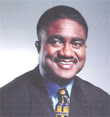It is official: if you’re white and can prove that your race is the only reason you’re not being allowed to take part in a summer journalism program at an academic institution, you can sue and force the institution to admit you.
Yes, the way I’ve stated this is a little inflammatory. But, for good reason. Fortunately, civil rights laws don’t allow discrimination based on one’s race in any scenario.
Last summer,
Virginia Commonwealth University clearly erred in disinviting a white student who had been admitted to its Urban Journalism Workshop allegedly because the workshop organizers learned she was not a minority student. Read more about the case in
this story from the Commonwealth Times.
The Chronicle of Higher Education reported this week that ”the
Dow Jones Newspaper Fund agreed to cease operating summer journalism programs solely for minority students.”
Since when has Dow Jones been operating any programs solely for minority students?
While focused on increasing the presence of racial minorities in the nation’s newsrooms, the Dow Jones Newspaper Fund has never PROHIBITED a non-minority student from taking part in the workshops it funds.
Up until now, as a private organization, it could encourage those organizing the 10-day or two-week summer programs often held on public university campuses, to do targeted recruitment aimed at students of historically under-represented racial groups.
According to The Chronicle, “Dow Jones agreed to open up its programs to
members of any racial or ethnic group and to rename the programs to drop
references to minority members.”
The language (i.e. “open up) used in this story assumes that the programs had been closed or exclusionary. It even listed my institution among those that were “involved in the race-exclusive Dow Jones programs last summer.”

If you click
here, you will see the photos of some of our students in the 2006 workshop at the University of Alabama . I remember getting to know Nick Persac as we sat together at the opening night banquet as the legendary Merv Aubespin socialized this group of outstanding young journalists into the intensive experience of a Dow Jones workshop.
Nick ended up enrolling here at Alabama for a semester. But, he was not part of a “race-exclusive program.” We don’t run such programs here at the University of Alabama.
Here at the University of Alabama, we renamed our workshop, which is now in its 24th year, several years ago. Since 2003, when we began calling our program the
Multicultural Journalism Workshop, we’ve had several outstanding white students like Nick to apply and be admitted to our program.
I know this much because as a co-director of the 2004 workshop, I made the visits to high schools inviting students of all races to come and experience journalism for two weeks at one of the nation’s premiere journalism schools.
I feel a special connection to this whole Dow Jones controversy because I credit the Urban Journalism Workshop at Virginia Commonwealth University with being the SINGLE turning point in my decision to pursue a journalism career. I have to wonder if a white person had sued to force his or her admission into the 1986, would I as an African-American male have had a chance to get turned on to journalism?
I think the answer is “YES.” I had been diligent enough during my freshman and sophomore years in working on my high school newspaper and yearbook and was a strong enough student academically that I would have been admitted regardless of whether white students were in my program.
The point is—this is not about keeping students from any racial group out of a summer journalism experience like the Dow Jones workshop. It’s about how far some will go to push their political agenda under the guise of “Individual Rights.”
The real issue is not one person’s individual rights, it’s the effort to the nation still needs to make to go out of its way to diversify our nation’s newsrooms. The latest figures from the American Society of Newspaper Editors the percentage of minorities working in newsrooms is still only 13.87 percent.
Organizations like the
Center for Individual Rights don’t seem to be concerned about that.
“Today's [Feb. 15] settlement saves the taxpayers significant legal expense and
ensures that this summer's programs will be open to all, regardless of
race," said Terence J. Pell, president of the Center for Individual Rights.
Thanks Center for Individual Rights for reinforcing what many Dow Jones Newspaper Fund workshops already do. Now, what about that 13.87 percent of minorities in newspaper newsrooms? How do we increase that number now?
Assuming, everyone has a RIGHT to participate in a Dow Jones Newspaper Fund workshop, where are the funds to increase the number of seats so that the Dow Jones program can have at least equal the impact it has had on the industry during the last quarter century?
The struggle continues!







